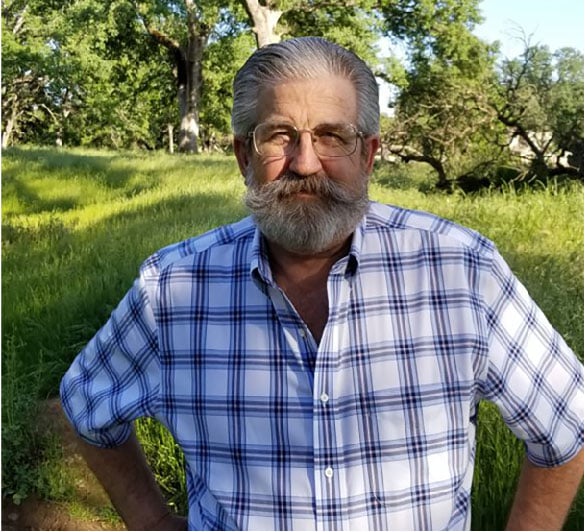“I would highly recommend that every grower utilizes Ceres Imaging’s complete crop imagery and the insights it can provide.”
Also a broker of agricultural and ranching real estate, Jeff Dyer farms in the fertile bottom ground along the Sacramento River. Over the years, Double J Farms has grown alfalfa, sunflowers, tomatoes, and rice—but Jeff now focuses on walnuts.

From soil moisture probes and underground sensors, Jeff knew that soil quality varied across Double J Farms, and he suspected that it was having an impact on his trees’ uniformity—and his profits. Some trees were visibly smaller and obviously under-producing, and these tended to be located in areas with sandy soil.
Jeff had tried applying more water to improve the health of the weaker trees, but found that doing so caused him to inadvertently overwater other trees. He needed an efficient way to pinpoint exactly which areas of the orchard needed more or less water, without relying on guesswork or extensive trial and error.
After seeing an advertisement for Ceres Imaging in a local publication, Jeff decided to find out if an aerial perspective could help him adjust his irrigation strategy for the orchard’s variable soil.
Using Ceres Imaging’s precise water stress data, Jeff could pinpoint the trees that tended to dry out before the rest of the orchard—even those that didn’t immediately display easily visible signs of stress. Armed with this information, he was able to make strategic changes to his irrigation system, increasing the size of the emitters only in areas of the orchard where trees actually needed the additional water.
“Those trees are back to normal, producing what they should be,” says Dyer. He continues to use Ceres Imaging to monitor irrigation performance and guide his management decisions today.
Ceres Imaging helped Double J Farms improve uniformity by addressing water stress in walnut trees caused by variable soil conditions.

“Ceres Imaging is very minimal expense relative to the benefit we see in tree health... Along with water sensors, it is an essential tool that I depend on to guide my management decisions and grow a uniform walnut crop.”